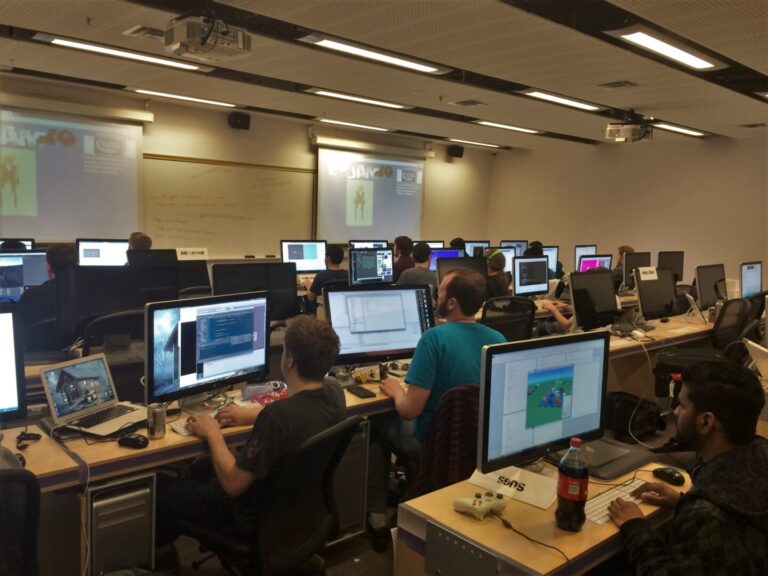The notion of scenes has helped frame how particular clusters of cultural activities, practices, and “happenings” simultaneously replicate and transform global practices in specific localities. The study of scenes has aided us in examinations of how geographic and virtual localities create and shape global industries, movements, and genres. In this article, I focus on the Toronto game production scene to examine how it replicates and transforms the wider cultural norms, working conditions, and genre productions of the global game industry. Based on a two-year ethnography of the scene, I survey how gamemakers maintain and challenge the expected norms and practices of industry and platforms in the production of local games. To identify these clusters of cultural activity, I develop the notion of scenes as palimpsests to trace how gamemakers replicate and transform industry cultural norms and practices in the local scene. The last decade has seen the emergence of social media platforms as a venue for participants of scenes to discuss, create, and disseminate their works with geographically local and global audiences. The textual spaces of these platforms connect participants of local production scenes to a global community defined by geography, industry, and genre. By tracing scenes through its inscriptions, I examine how these platforms are centers for encounters between the values and practices of the Toronto game production scene and the wider industry. This article is about how the geographical cultural activities of scenes are shifting into virtual environments, and how these virtual spaces are transforming the cultural norms and practices of gamemaking and its associated activities, such as socials, game jams, and “talking shop.” I argue that analyses of globalization must consider the wider physical and virtual infrastructures of local production to understand how cultural media are produced and circulated around the globe.
Keyword: production
Editors’ Introduction
This issue of Lateral examines the means by which performances happen at a variety of scales of cultural production and circulation, from the street to the living room to the border; from a cellphone to the theatrical stage to the art gallery; from public discourse in policy debates to the global circulation of performances of blackness, alterity, and power. Trends across these various means are thus particularly illuminating for the study of culture; performance can give us insight into aspects of culture more broadly and with great ability to account for differences and dynamics of power.
#bottlesNbones
#bottlesNbones is one part of a multi-site project, #trashNtoxicity examining the irremediable, abandoned, unrecycleable, and non-biodegradeable postnatural affects of human production.
Culture Industries: Critical Interventions
This thread presents a different agenda for studying culture and the culture industries in particular, one that is grounded in a distinctly cultural studies materialist reflexivity. Cultural studies is probably best understood as the politically committed, theoretically grounded, and radically self-reflexive and historical-materialist analysis of cultural processes and practices, where the commitment to imagine a humane, socialist society has always been a guiding assumption in the field from its early formations in post-war Britain.


